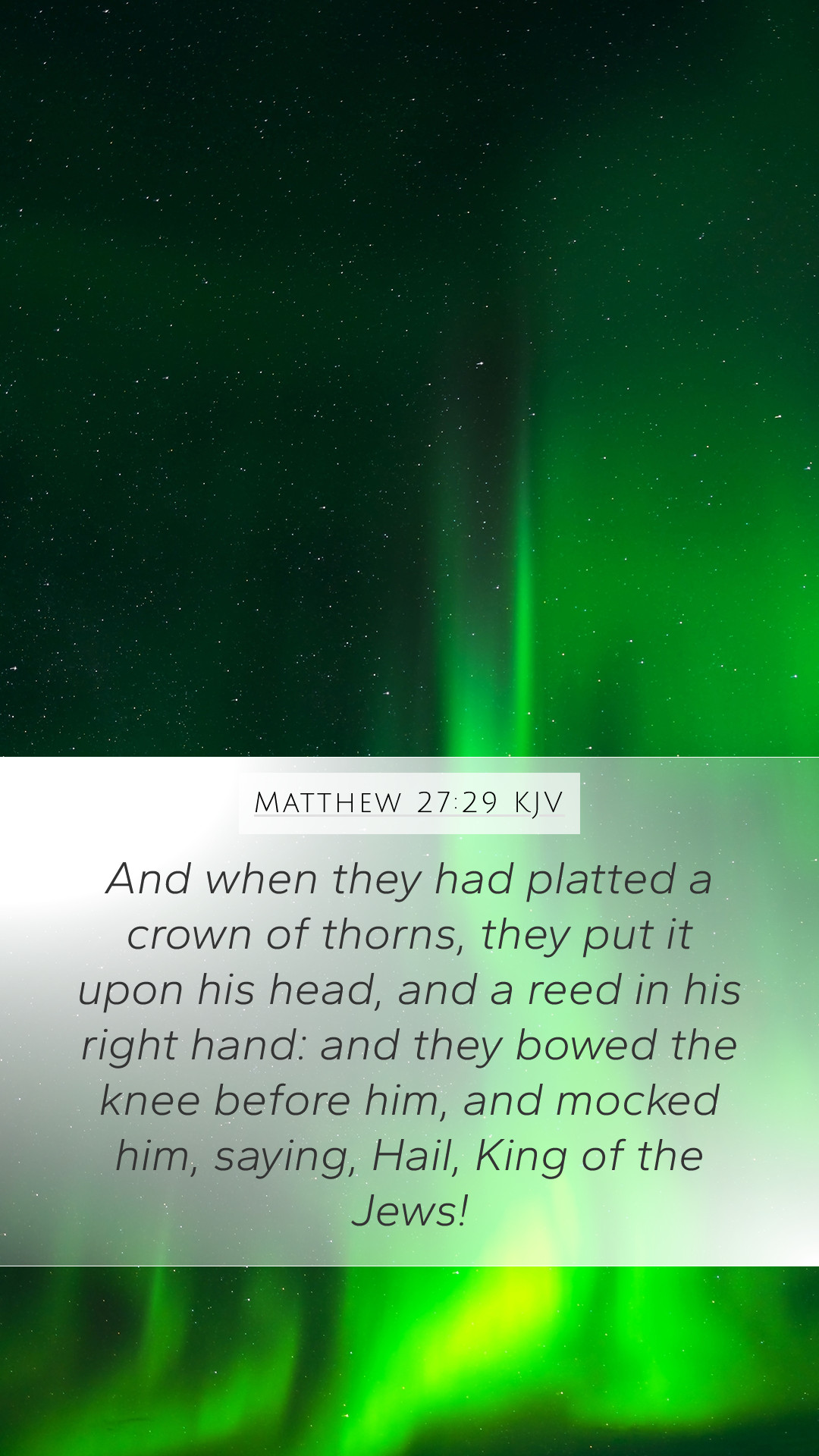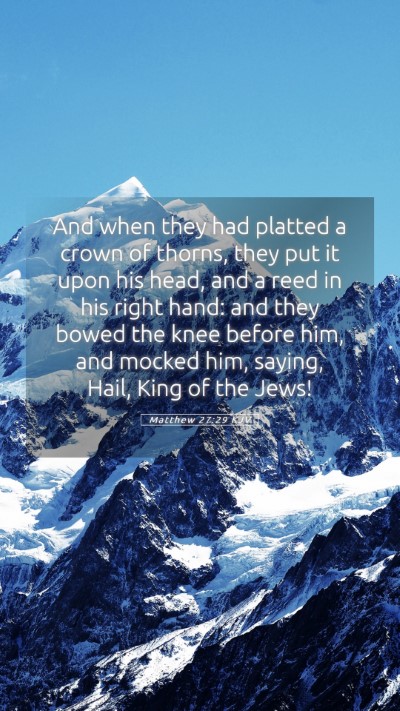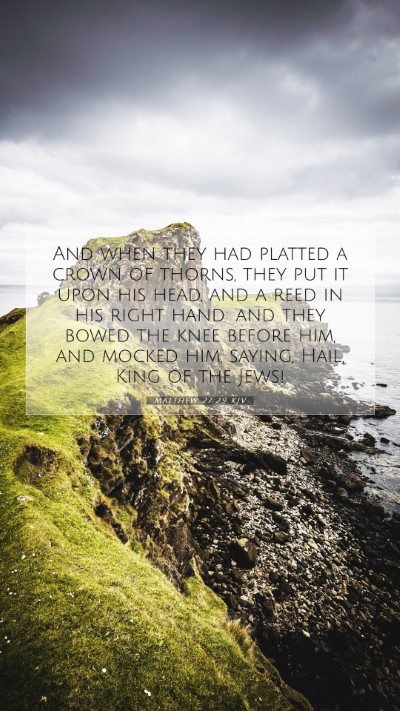Matthew 27:29 - Bible Verse Explanations
This verse details a profound moment in the Passion of Christ, highlighting the mockery of Jesus during His trial. Understanding this verse requires a careful examination of its context, symbolism, and the fulfillment of prophecy. In Matthew 27:29, we see soldiers placing a crown of thorns on Jesus' head and giving Him a reed as a scepter, mocking Him as "King of the Jews." Below, we explore the meaning of this passage through the lens of public domain commentaries.
Verse Context
Matthew 27:29 states:
"And when they had platted a crown of thorns, they put it upon his head, and a reed in his right hand: and they bowed the knee before him, and mocked him, saying, Hail, King of the Jews!"
The context of this verse is critical, as it occurs during the trials leading to the crucifixion of Jesus. It exemplifies the humiliation and suffering He endured for humanity.
Commentary Insights
- Matthew Henry:
Matthew Henry emphasizes the cruelty of the soldiers and the depths of Jesus' humiliation. The crown of thorns symbolizes the pain and suffering of sin, which Jesus was about to bear on the cross. The act of mocking indicates not only their disdain but also foreshadows the greater rejection He would face from the world.
- Albert Barnes:
Albert Barnes points out that the crown of thorns was a powerful symbol contrasting the true royalty of Jesus. By wearing such a crown, He ironically shows the nature of His kingship, which is not of this world. Barnes highlights that the mockery was a fulfillment of prophecy, aligning with Isaiah 53:3 where it states He was despised and rejected by men.
- Adam Clarke:
Adam Clarke notes the symbolic act of bowing the knee before Jesus. This mockery serves as a grave reminder of how people misunderstand divine authority. Clarke also brings attention to the reed given to Jesus, resembling a scepter but serving as a tool of ridicule, emphasizing the stark contrast between earthly power and divine kingship.
Symbolism and Meaning
The crown of thorns bears deep significance in biblical exegesis. It represents:
- Suffering and Sacrifice: Jesus bore our sins and suffering, symbolically wearing our pain on His head.
- Rejection: As King of the Jews, His immediate followers and the governing authority failed to recognize His true identity.
- Prophetic Fulfillment: This act is intertwined with Old Testament prophecies about the suffering Messiah, emphasizing the scriptural basis for understanding Jesus' mission.
Applying the Verse Today
Understanding Matthew 27:29 provides insights into how we can apply the teachings of Jesus' suffering in our lives:
- Acceptance of Suffering: Just as Jesus endured mockery and pain, believers are called to accept their trials with grace.
- Recognition of True Kingship: In our lives, we must acknowledge Jesus as the true authority amidst earthly challenges.
- Empathy and Compassion: Seeing the suffering of Jesus can help us foster a compassionate response to those who endure hardships.
Cross References
- Isaiah 53:3: "He is despised and rejected of men; a man of sorrows, and acquainted with grief."
- John 19:2: "And the soldiers platted a crown of thorns, and put it on his head, and they put on him a purple robe."
- Psalms 22:7-8: "All they that see me laugh me to scorn: they shoot out the lip, they shake the head, saying, He trusted on the LORD that he would deliver him."


